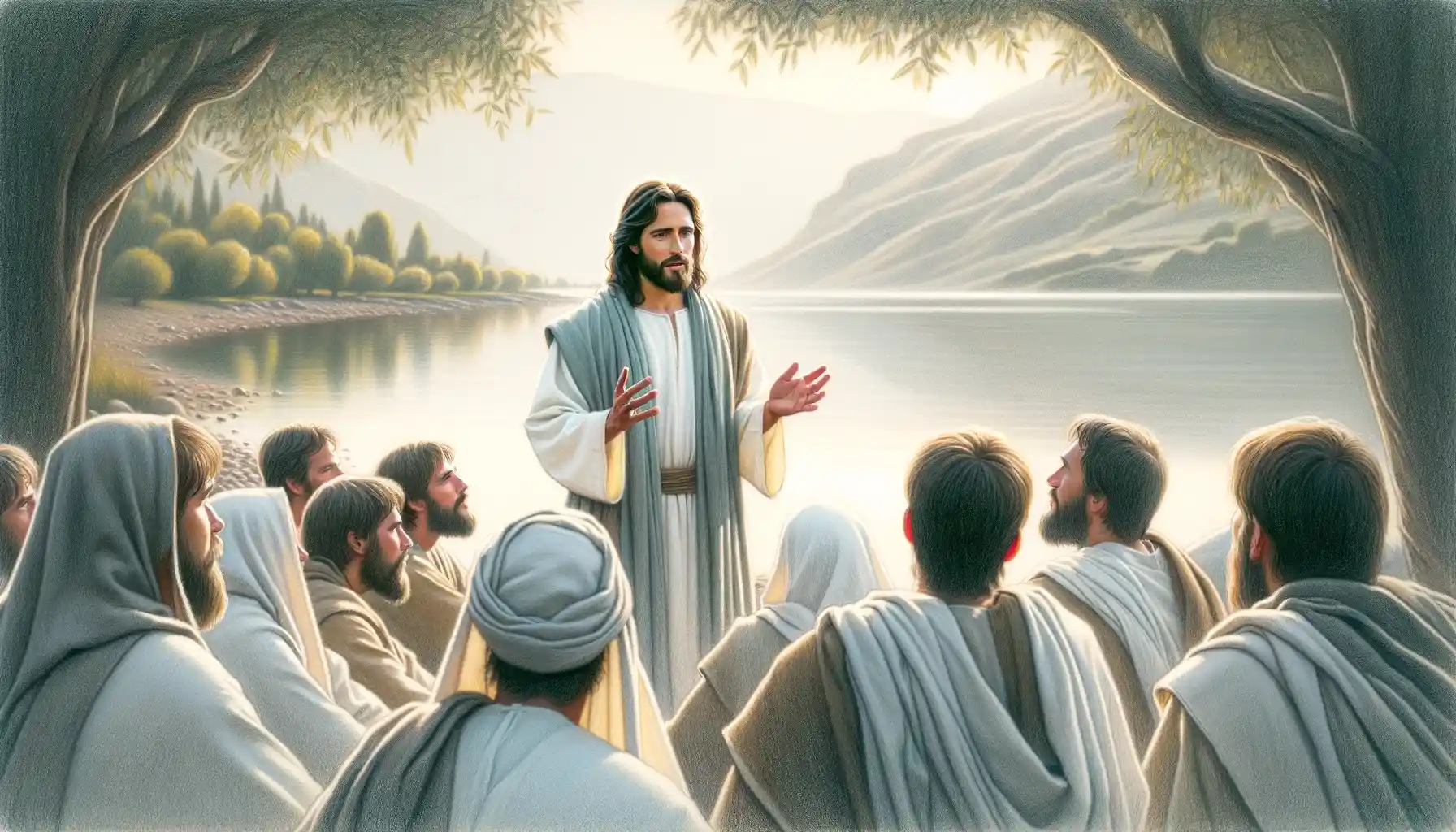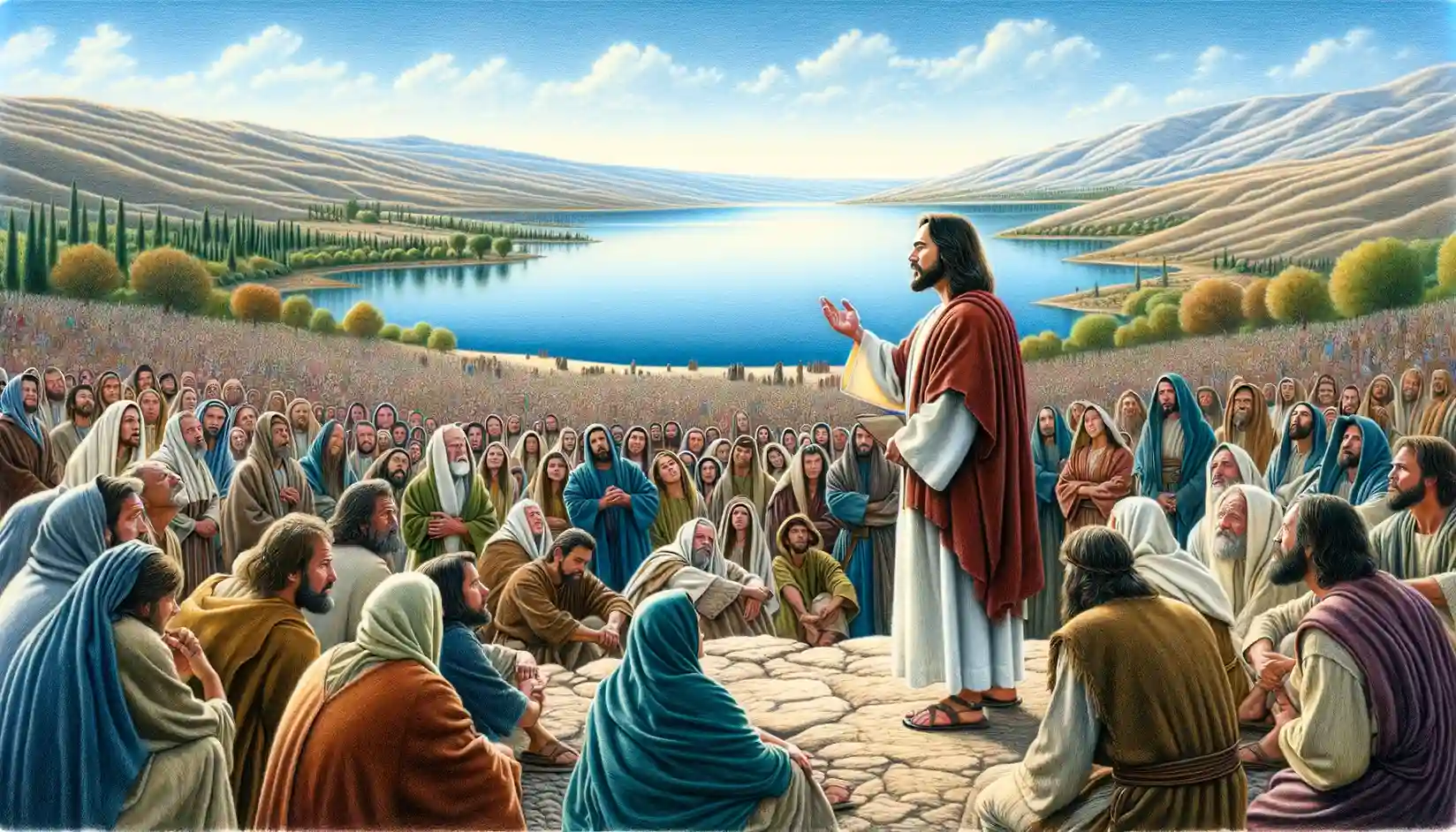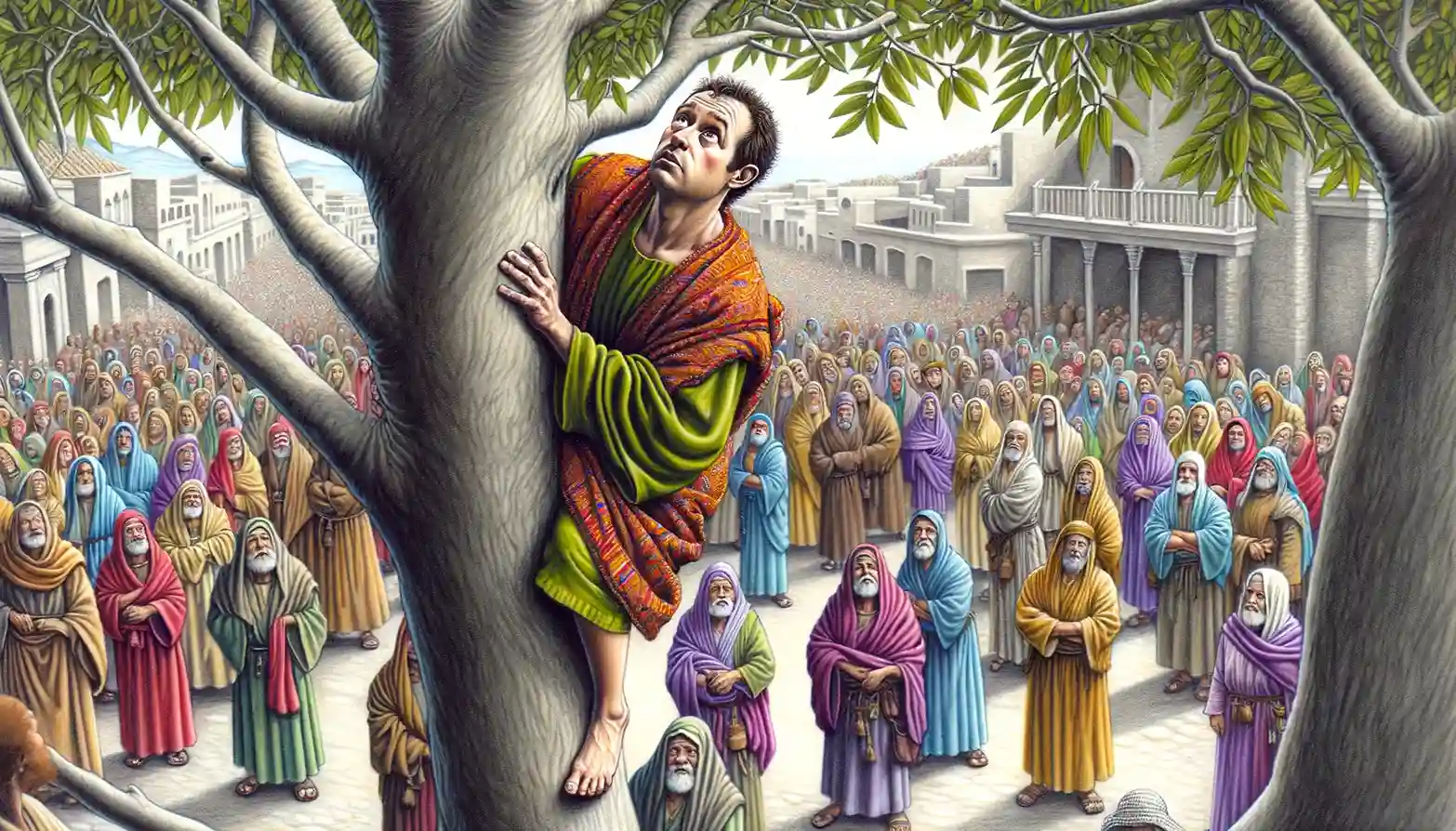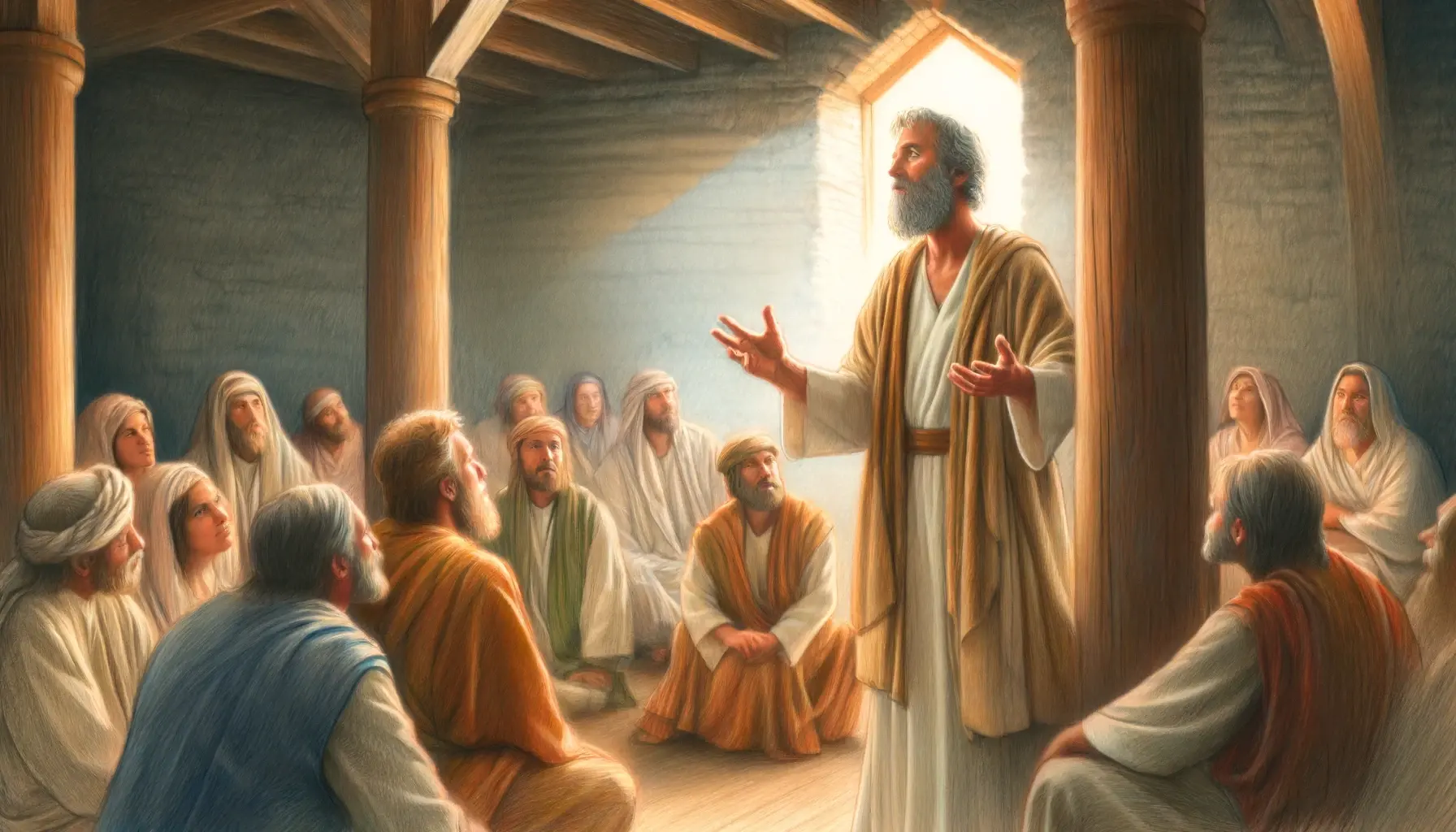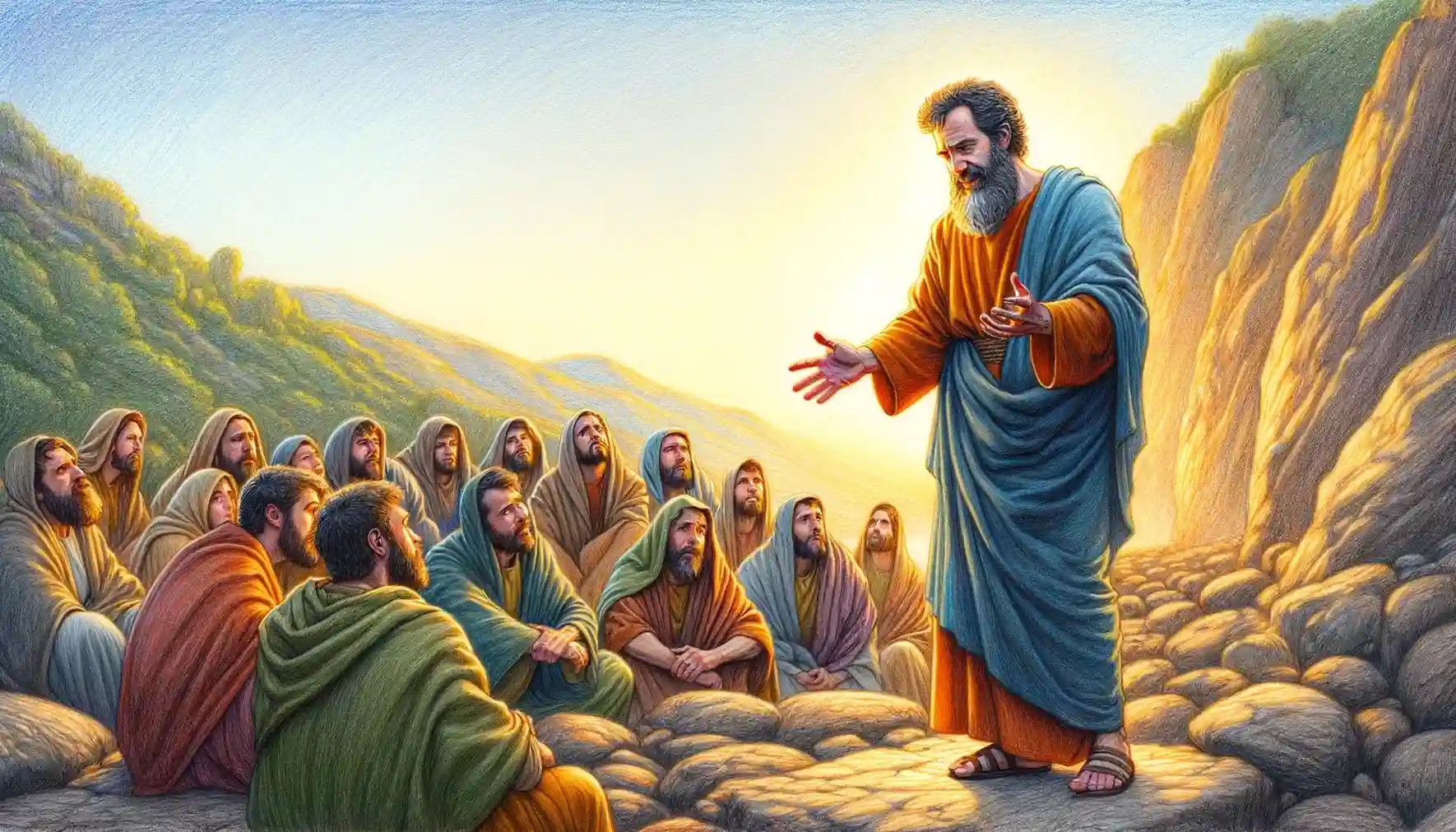Noah’s Ark, a massive vessel made of gopher wood and sealed with pitch, was built to specific dimensions to house Noah’s family and pairs of all animal species during the Great Flood, symbolizing God’s salvation and judgment.
In the biblical narrative of Noah’s Ark and the Flood, detailed in Genesis chapters 6 through 9, God decides to cleanse the earth of its pervasive wickedness by sending a catastrophic flood, sparing only Noah, a righteous man, his family, and representative animal species who survive in a divinely instructed ark, leading to a renewed covenant symbolized by a rainbow.
Jesus Christ, central to Christianity, is believed to be the divine Son of God who came to earth to offer salvation through His teachings, death, and resurrection. His life and miracles, documented in the New Testament, continue to inspire and guide millions of believers worldwide.
The “I AM” statements of Jesus in the Gospel of John are profound declarations that not only reveal His divine identity and messianic mission but also symbolically connect Him with the Old Testament revelation of God as “I AM,” thereby affirming His unique role as the sustainer of life, the source of salvation, and the ultimate revelation of divine truth to humanity.
The Book of 1 John emphasizes the themes of love, fellowship, and assurance of salvation, calling believers to walk in the light of Christ, to love one another, and to abide in Him, while also providing tests of authentic faith and affirming the centrality of God’s love in the Christian life.
The Book of 1 Peter offers enduring encouragement and exhortation to persecuted believers, emphasizing their identity in Christ and calling them to live holy lives, rooted in hope and grounded in the grace of God.
The Book of Hebrews presents Jesus Christ as the supreme revelation of God, emphasizing His superiority over all other forms of revelation and urging believers to place their trust fully in Him for salvation and perseverance in the faith.
In the Book of Titus, the Apostle Paul underscores the necessity of appointing qualified elders to maintain order and guide the faithful, emphasizing the significance of sound doctrine and good works in fostering a vibrant and steadfast Christian community.
The Book of Colossians remains a foundational text for understanding Christ’s role in the universe and in individual Christian lives, offering rich theological insights and practical advice for maintaining a faithful Christian walk.



